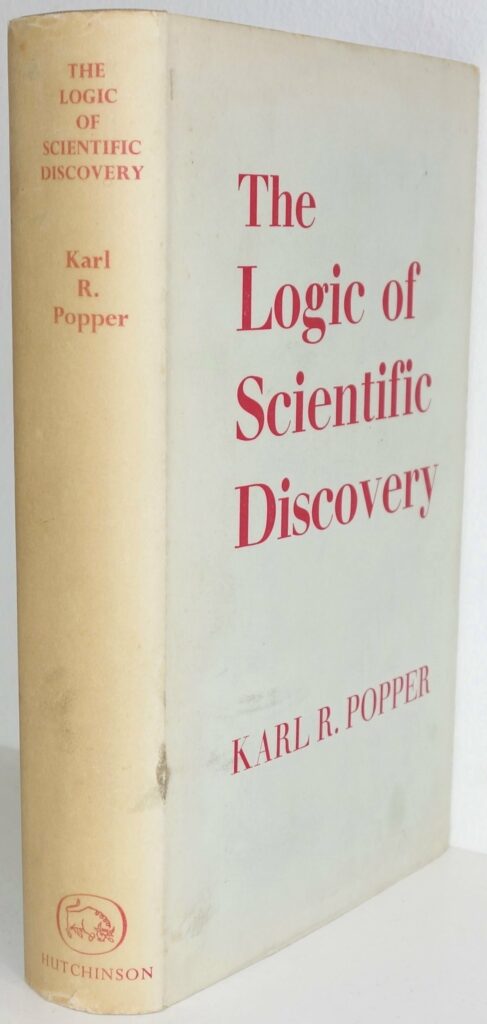First edition in English of one of the outstanding works of twentieth-century philosophy, originally published as ‘Logik der Forschung’ in Vienna in 1934. ‘One cannot help feeling that, if it had been originally translated as soon as it had been published, philosophy in this country might have been saved some detours. Professor Popper’s thesis has that quality of greatness that, once seen, it appears simple and almost obvious’ (Times Literary Supplement). Popper’s central insight is the logical asymmetry between verification and falsification: while no number of positive outcomes of experimental tests can prove that a scientific theory is true, it takes only one counterexample to prove it false. Thus falsifiability is the criterion which demarcates true science from pseudoscience: a theory is properly scientific if and only if it makes claims definite enough to be refutable in principle by testing – as for example Einstein’s theory of general relativity does, while astrology, Freudianism, and the Marxist theory of history do not.

